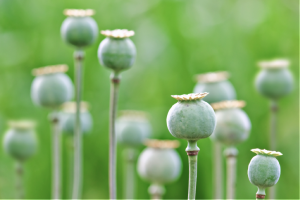 There are many openly available drugs on the market that, despite their health benefits, are known to sometimes have adverse effects on humans. Codeine, which is commonly found in both over the counter and prescription medications, is one of them. New research has shown that children are actually becoming more susceptible to the adverse effects of codeine. After several recent deaths due to codeine intoxication, pharmaceutical experts are now advising doctors and parents to stop providing children with medication that contains this seemingly harmless drug.
There are many openly available drugs on the market that, despite their health benefits, are known to sometimes have adverse effects on humans. Codeine, which is commonly found in both over the counter and prescription medications, is one of them. New research has shown that children are actually becoming more susceptible to the adverse effects of codeine. After several recent deaths due to codeine intoxication, pharmaceutical experts are now advising doctors and parents to stop providing children with medication that contains this seemingly harmless drug.
If you’re planning to take a pharmaceutical drug safety course, or have already in enrolled, you’ll want to keep up to date on any new drug regulations. Read on to find out why codeine is now deemed dangerous for children, and how the pharmaceutical industry will monitor and regulate its future use.
Traditional Uses of Codeine as a Pharmaceutical
Codeine is derived from the poppy plant, which makes it a member of the opiate family. Scientists and doctors have also derived morphine and opium from the poppy plant—both which were commonly used in early medicine as pain relievers. Today, codeine is commonly used to supress coughs, and can be found in some over-the-counter and prescription cough syrups. Since children are susceptible to coughs, they are often exposed to codeine through cough syrups. Pharmacovigilance experts are now pushing for the removal of codeine from cough syrup, due to recent research which reveals its potential to cause harm to children under the age of 12.
Why Pharmaceutical Regulators Are Saying Codeine is Dangerous
Students taking drug safety courses are likely already aware that any type of opiate—including codeine—has addictive properties. However, this isn’t the main reason why experts are now recommending that children steer clear of the drug.
Codeine becomes a pain reliever when the body converts it into morphine. However, some people’s bodies convert codeine into morphine at faster than normal rates, which can lead to intoxication. Because children are smaller and their bodies have a less adequate system for processing medicine, they are at higher risk of overdosing on codeine, leading to severe respiratory illness and in some cases death.
The Future of Codeine on the Pharmaceutical Market
Even with its risks, codeine is currently an active ingredient in many over the counter medications sold in Australia, Canada, the USA, Sweden, and several more countries. Meanwhile, some countries have placed severe restrictions on codeine, or even outright banned it, such as the UAE, the Maldives and Sri Lanka.
Although codeine has received criticism from health care professionals before, it’s unlikely that the drug will be banned indefinitely. The World Health Organization has codeine on their “List of Essential Medicines”, and many healthcare facilities rely on codeine as a potent pain reliever for cancer patients. However, because of the new dangers associated with the drug, students earning their drug safety and pharmacovigilance certificate will likely begin to see a shift towards codeine alternatives in the near future.
Do you want to learn more by enrolling in a pharmacovigilance program? Check out our website for more information, or to speak with an advisor.



